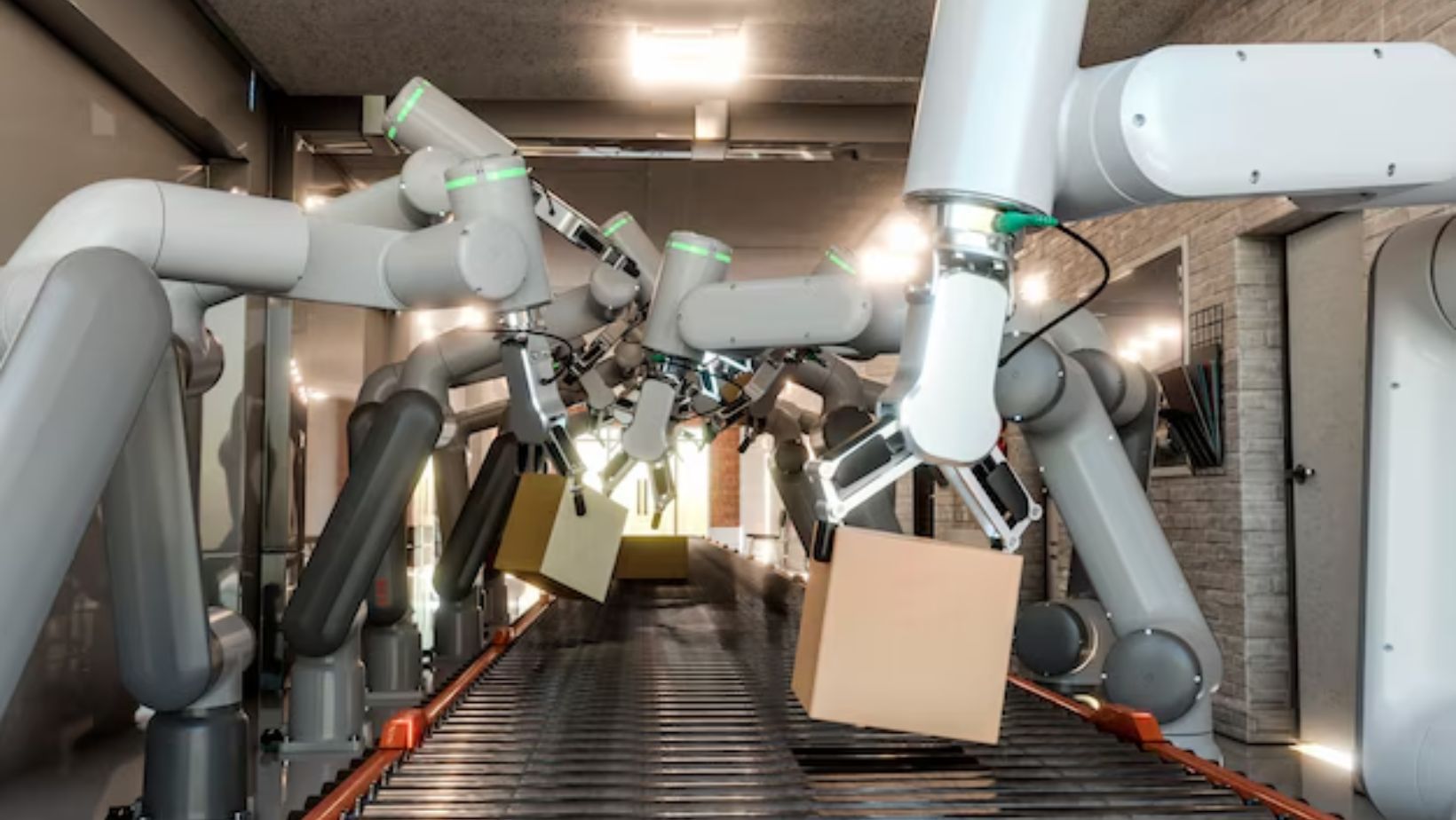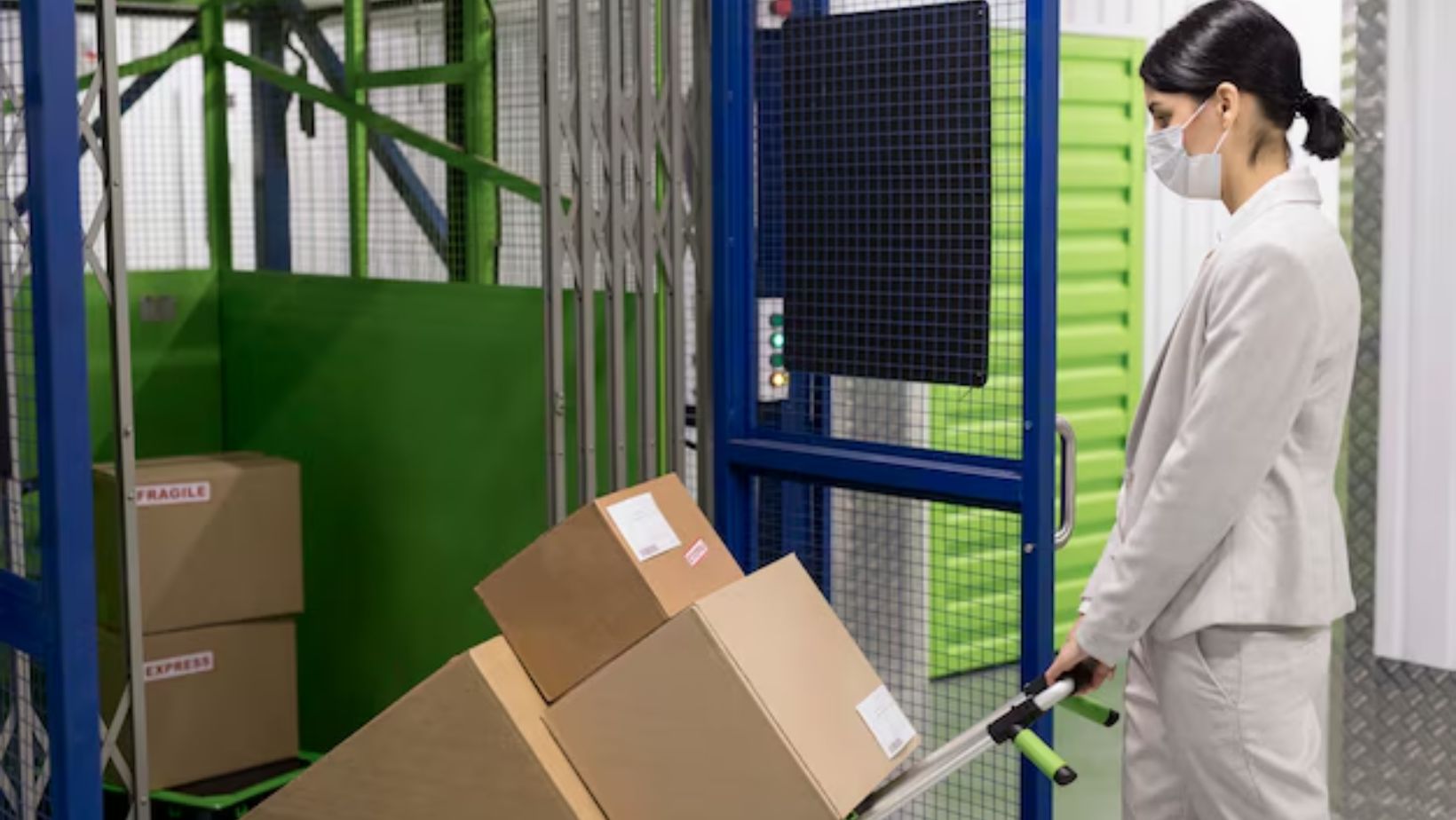Picture a manufacturing warehouse where products are transported endlessly, productivity increases exponentially, and responsibility for employees’ safety is paramount.
That’s the advantage of conveyor systems – a game changer in present-day manufacturing processes. These systems have changed the ways that industries transport raw materials, eradicating delays and decreasing costs while increasing performance.
Whether it is used in an automobile production line, food packing unit or technical sleek, rich-stored godown, these innovative conveyor systems facilitate making processes more effective, efficient, and accurate.
But it does not end here since these machines are not only easy, adaptable, and modular but also eco-friendly.
Want to discover how conveyor systems can take your business to a higher level?
In this article, we look at the six benefits of these innovative solutions and why they are critical for manufacturers globally.
1. Enhanced Efficiency and Productivity
Conveyor system increase efficiency by moving materials, components, or products from one point of the production process to another automatically.
This is much better than manual handling of products through the line, where accidents such as breakdowns and injuries may reduce productivity and increase downtime considerably.
Key Benefits
- Consistent Workflow: Conveyor systems keep the materials on the production line evenly, meaning that there is little to no interruption in the already existing and running conveyor lines.
- Increased Throughput: Automated systems are capable of handling a large number of materials more than manual methods.
- Time Savings: It takes less time compared to the time consumed in transporting the products from one point to another within the organization.
For instance, in the automobile sector, conveyors are used to move bulky car parts for easy assembly, thereby covering tight production deadlines. In parallel, manufacturers are also implementing shop floor management systems to coordinate teams, standardize operations, and ensure continuous improvement across production lines.
2. Improved Safety in the Workplace
Lifting products or substances that are hazardous may result in occupational injuries. These risks are avoided in conveyor systems because they help to eliminate risks associated with the manual handling of materials by organizing the handling process.
Safety Enhancements
- Reduced Manual Lifting: Minimizes the likelihood of musculoskeletal disorders.
- Controlled Movement: Prevents the risks that come with dropping or managing the products in a wrong manner.
- Integrated Safety Features: Most conveyor systems include sensors to alert workers and make emergency stops, as well as built-in guards to avoid mishaps.

For example, in food and beverages, conveyors used to transport food items, such as bread, should be hygienically built to avoid contamination of food by workers and end consumers.
3. Cost-effectiveness
Investing in conveyor systems is one of the smartest choices since the long-term savings are enormous. These systems lower the cost of production and employment, minimize wastage, and improve the smooth running of organizations.
Financial Advantages
- Reduced Labor Costs: Using a single conveyor system is more economical than paying a number of workers to do the same job.
- Lower Maintenance Costs: Conveyor systems of the present day are long-lasting with little need for repair.
- Minimized Material Waste: Material management minimizes product damage, rebuffs, or loss, which are the leading causes of wastage.
An example would be a firm that deals in medicines and uses conveyors to sort and pack the medicines appropriately to minimize the cost that comes with handling and packaging the wrong items.
4. Flexibility and Customization
Today’s conveyor systems are very flexible and can be tailored to meet production requirements. From moving sensitive glass products to shipping automotive components, conveyor systems are not just adaptable but flexible.
Features
- Modular Designs: Enables easy reconfiguration as production requirements shift.
- Variety of Conveyor Types: Belt conveyors, roller conveyors, and overhead conveyors, each designed to undertake specific tasks.
- Adjustable Speeds: Allow the manufacturers to regulate the flow of production.
An electronics manufacturer, for instance, can employ some anti-static conveyors so that none of the electronic parts get damaged.
5. Scalability for Future Growth
It is important to note that conveyors are a great investment, particularly for organizations that are anticipating growth. Due to their modularity, businesses can expand operation complexities as the demand rises with ease.
Growth Benefits
- Expandable Systems: Other modules may be added without much inconvenience to the running of the business.
- Adaptable Technology: The new advanced conveyor system can integrate artificial intelligence and industrial IoT to predict and monitor breakdowns and productivity.
- Capacity to Handle Increased Volume: Facilitates businesses’ readiness for increased production expectations.
Packaging companies may decide to make their conveyance system larger to accommodate additional products without having to redesign the entire system.
6. Enhanced Product Quality and Consistency
Conveyor systems guarantee constant handling and processing, which raises the quality of the final product. Human error is significantly decreased, which might lead to flaws or irregularities.
Assurance of Quality
- Process Precision: Automated systems keep product packing and assembly consistent.
- Decreased Contamination: Conveyors guarantee hygienic handling in sectors like food and medicines, lowering the risk of contamination.
- Reduced Damage: Delicate objects are shielded by gentle handling techniques.

In the baking sector, conveyor systems guarantee even baking and cooling of products, preserving consistent quality throughout batches.
Bottomline
Conveyor systems are now an essential component of contemporary manufacturing because they provide unmatched benefits in terms of flexibility, safety, and efficiency.
These technologies streamline production and put businesses in a successful long-term position in a market that is becoming more and more competitive by automating material handling procedures.
Investing in a conveyor system appropriate for your production requirements can pay off handsomely, guaranteeing competitive advantage and operational excellence.
Whether you work in electronics, food processing, or the automotive industry, conveyor systems offer a reliable way to satisfy the needs of the modern, fast-paced industrial environment.



